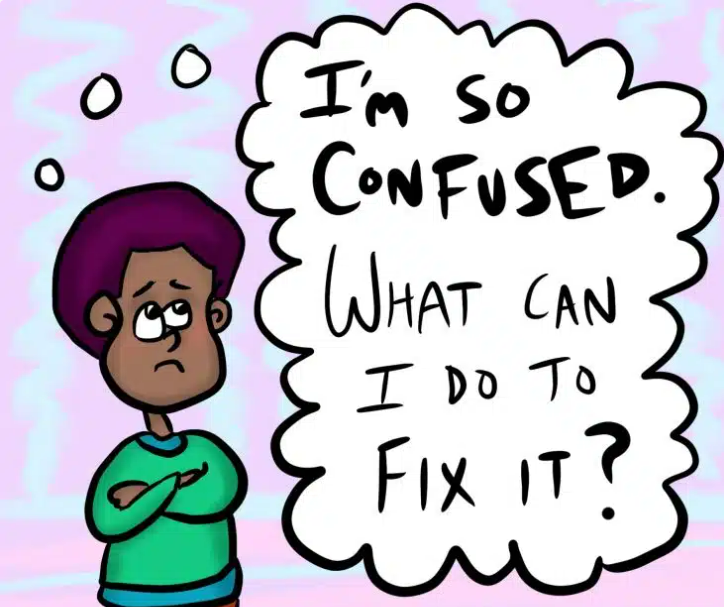By Jennifer Bailey, LCSW; RDT
As parents, we worry about our children’s ability to make smart and productive decisions. We know making decisions for them is not a lifelong solution. However, when we help our children develop their metacognitive skills, we teach them to think for themselves.
Molding our Children into capable adults
Raise your hand if you have ever said any of the following:
- Think before you speak or act.
- What were you thinking?
- Did you think about the consequences?
My hand is also raised.
As parents, we want to guide and help our children grow into capable adults. But what makes a capable adult? There are many responses to this question, but I focus on only one: thinking.
A capable adult does not have all the answers, nor do they know how to do all the things. Capable adults know how to think through a situation. Capable adults know when to ask for help. A capable adult thinks about the problem at hand and makes a plan to obtain a solution. Capable adults can analyze an inefficiently solved problem and consider how they might have approached it differently.
What is Metacognition?
Metacognition is developing awareness and understanding everything to consider at any given time. I know that sounds very overwhelming.
Here’s an example: you walk into a room full of people and assess what the group is doing. You notice music and a table filled with snacks and drinks. So you would conclude you are at a party. If you see people looking bored, you may conclude it’s a boring party. If you see people dancing, talking, and enjoying themselves, you may be likelier to stay and join the fun.
At that moment, you are thinking about the components of the situation, the group as a whole, the individual people, and how you plan to respond.
You could head over to the snack table or hit the dance floor. Or, if the party is boring, you may sneak out to head back home and watch reruns of The Office.
If we break it down, metacognition is thinking about our own thinking. It helps us navigate social situations, solve problems, and build our sense of self.
If you have a solid understanding of your thoughts, you know how you may respond in certain situations or, even better, choose how you would want to respond in a given situation.
If we can engage in metacognition, we are setting ourselves up to make positive and productive choices.
Teaching Through Questions
So, how do I help my child practice metacognition? The answer is metacognitive questions, to be exact. These questions help your child build skills in thinking about their thinking.
When your child practices metacognition, they build skills to think through problems, identify possible solutions, and choose one that best fits the given situation.
Metacognitive questions take time to learn and use effectively. A wonderful way to practice metacognitive questions is when there is a task to complete, a problem to solve, or if an unexpected event happens.
Here are examples of metacognitive questions:
Before starting a task:
- Do I know the steps to complete this task?
- What might distract me from finishing?
During the task:
- How am I progressing?
- Am I following the steps correctly?
- Who can I ask for help if needed?
After completing the task:
- What went well, and what can I improve next time?
- How do I feel now that it’s done?
- Did I put in my best effort?
You want to use metacognitive questions often, mainly because you have to practice if you want to get good at something. Just like thinking takes practice, it also takes time.
So, if you want to practice building metacognition skills with your child, start when you are not in a rush to be somewhere or get something done. The more you practice, the easier it will become, and soon, you may notice your child starting to engage in metacognition with less guidance from you!
For example, if you’re about to clean their room together, you might ask:
- What does a clean room look like?
- Does your room match that image?
- What steps do we need to take to achieve that?
- What’s the first thing we should do?
- How will we know when we’re done?
Patience Is Key
Now, the hard part of using metacognitive questions is allowing your child to answer them independently. As a parent, you will need to be patient. Remember your child’s brain is still developing, especially the logical part of their brain known as the frontal lobe.
In fact, according to the National Institute of Mental Health, the frontal lobe isn’t fully developed until one is in their mid to late twenties.
So when your seven-year-old, 12-year-old, or even your 16-year-old has difficulty knowing where to start or how to complete a task, remember that thinking (or logic) is an emerging skill at these ages. This skill needs consistent practice over a long period. We are talking years, folks!
Takeaways:
I know you just read through this whole article. Your brain may be throbbing right now. So here are the main takeaways to carry with you and incorporate when with your child:
Metacognition is thinking about your thinking. It develops awareness and understanding of everything to consider at any given time.
Teaching our children to think will help them develop into capable adults.
Use metacognitive questions to help teach your child how to think.
Jennifer Bailey is a wife, mother of three, and a therapist. She is a Licensed Clinical Social Worker (LCSW) and Registered Drama Therapist (RDT).
How do you feel about this article? Choose from the options below.








